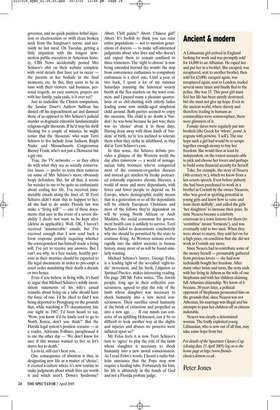Ancient & modern
A Lithuanian girl arrived in England looking for work and was promptly sold for £4,000 to an Albanian. He raped her and put her in a brothel. She escaped, was recaptured, sent to another brothel, then sold for £3,000, escaped again, was recaptured again, sent to London, traded several more times and finally fled to the police. She was 15. This poor girl must feel her life has been utterly destroyed, but she must not give up hope. Even in the ancient world, where slavery and therefore trading in humans as commodities were commonplace, there were glimmers of it.
Female slaves were regularly put into brothels (the Greek for ‘whore’, pornê, is cognate with pernêmi, ‘I sell’). The one hope such a girl had would be to scrape together enough money to buy her freedom. She would then at least be independent, on the rosiest scenario able to pick and choose her lovers and perhaps to build some financial security for herself.
Take, for example, the story of Neaera (4th century BC), which we know from a law-courts speech. Even before puberty she had been purchased to work in a brothel in Corinth by the owner Nicarete, who ‘was good at spotting potential in young girls and knew how to raise and train them skilfully’, and called the girls ‘her daughters’ to increase their price. In time Neaera became a celebrity courtesan in a town famous for them (to ‘corinthise’ meant ‘fornicate’), and was eventually sold to two men. When they were about to marry, they sold her on for a high price, on condition that she did not work in Corinth any more.
Since Neaera had to contribute some of the money herself — presumably gathered from previous lovers — she had now technically bought her freedom. After many other twists and turns, the story ends with her living in Athens as the wife of one Stephanus and with her children claiming full Athenian citizenship. We know of it because, 30 years later, a political opponent of Stephanus prosecuted him on the grounds that, since Neaera was not Athenian, his marriage was illegal and his attempts to pass her children off as citizens indictable.
Neaera was clearly a determined woman. The foully exploited young Lithuanian, who is now out of all that, may take some hope from her.
For details of the Spectator Classics Cup (closing date 23 April 2005) log on to the home page at http://www.friendsclassics.demon.co.uk .
Peter Jones





























































 Previous page
Previous page